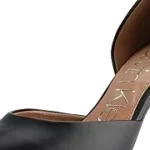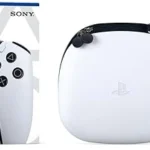Have you ever wondered why sunscreen seems to cost a small fortune? It’s a question many of us have asked, as we search for the perfect protection against harmful UV rays. The truth is, there are several factors that contribute to the high price tag of sunscreen products. From the research and development that goes into creating effective formulas to the strict regulations surrounding sunscreen production, understanding why sunscreen is so expensive can shed light on the importance of investing in this essential skincare product.
When it comes to sunscreen, quality is key. The process of formulating a sunscreen that effectively protects against both UVA and UVB rays requires extensive research and testing. This research, coupled with the cost of sourcing high-quality ingredients, contributes to the overall expense of sunscreen products. Additionally, stringent regulations imposed by health authorities ensure that sunscreens meet specific standards for safety and efficacy, further driving up the production costs. While sunscreen may seem expensive, the investment is worth it when it comes to safeguarding our skin from the damaging effects of the sun.
Why is sunscreen so expensive?
There are several reasons why sunscreen can be relatively expensive compared to other skincare products. Firstly, sunscreen requires specific ingredients that are effective in protecting the skin from harmful UV rays. These ingredients, such as zinc oxide and titanium dioxide, are often more expensive than the ingredients used in regular moisturizers or lotions.
Secondly, the production process for sunscreen is more complex and involves additional steps to ensure its effectiveness. Sunscreen needs to undergo rigorous testing to meet the required SPF (sun protection factor) standards. This testing process can be time-consuming and costly for manufacturers, which is reflected in the final price of the product.
Is it worth spending more on expensive sunscreen?
Investing in a higher-priced sunscreen can often be worth it for several reasons. Firstly, expensive sunscreens typically contain a higher concentration of active ingredients, such as zinc oxide or avobenzone, which provide better protection against harmful UV rays. This means they offer superior defense against sunburn, skin aging, and even skin cancer.
Additionally, pricier sunscreens often have a more elegant texture and finish, making them more enjoyable to apply and less likely to leave a white cast or greasy residue on the skin. The superior formulation of expensive sunscreens may also make them more resistant to water and sweat, ensuring longer-lasting protection.
Can I use cheaper alternatives to sunscreen?
While it may be tempting to use cheaper alternatives to sunscreen, such as regular moisturizers or makeup products with SPF, it is generally not recommended. These alternatives often lack the necessary ingredients and formulation to provide adequate protection against harmful UV rays.
Sunscreen is specifically designed to shield the skin from both UVA and UVB rays, whereas regular moisturizers or makeup products may only offer limited protection or none at all. To ensure proper sun protection, it is best to use a dedicated sunscreen product that has been tested and proven effective.
What factors contribute to the cost of sunscreen?
Several factors contribute to the cost of sunscreen. The quality and concentration of active ingredients play a significant role in determining the price. Sunscreens with higher SPF ratings, broad-spectrum coverage, and advanced formulations tend to be more expensive.
The manufacturing process also affects the cost. Sunscreens often require specialized equipment and facilities to ensure the proper blending and testing of ingredients. Additionally, regulatory compliance and safety testing add to the overall expenses, as companies must meet strict standards to ensure the effectiveness and safety of their products.
Are there cheaper alternatives to expensive sunscreen?
Yes, there are cheaper alternatives to expensive sunscreens available in the market. These alternatives may offer a lower price point while still providing adequate sun protection. However, it is important to carefully review the product’s ingredients and SPF rating to ensure it meets your specific needs.
Drugstore brands often offer affordable sunscreen options that are formulated to provide broad-spectrum protection. Additionally, some online retailers or discount stores may offer discounts or sales on sunscreen, making it more affordable for those on a budget. It’s important to note that even with cheaper alternatives, it’s crucial to choose a sunscreen with an appropriate SPF and reapply it regularly for effective sun protection.
What are the drawbacks of using cheap sunscreen?
Using cheap sunscreen may come with certain drawbacks. Cheaper sunscreens may contain lower concentrations of active ingredients, providing less effective protection against UV rays. This can leave your skin more vulnerable to sunburn, premature aging, and an increased risk of skin cancer.
Cheap sunscreens may also have a greasier or heavier texture, making them less pleasant to use. They may not be water or sweat-resistant, meaning they may need frequent reapplication, especially during outdoor activities. Additionally, some cheaper sunscreens may not offer broad-spectrum protection, leaving your skin exposed to both UVA and UVB rays.
Can I rely on clothing alone for sun protection?
While clothing can provide some level of sun protection, it is not sufficient on its own. Many fabrics have a certain level of ultraviolet protection factor (UPF), which measures their ability to block UV rays. However, most clothing does not provide complete protection, especially if it is lightweight or loosely woven.
For maximum sun protection, it is recommended to use sunscreen in conjunction with clothing. Applying sunscreen to exposed areas of skin, such as the face, neck, and hands, can provide an additional layer of defense against harmful UV rays.
Why do some sunscreens cost more than others?
Sunscreens can vary in price due to several factors. The cost of ingredients, particularly those with higher SPF ratings or advanced formulations, can significantly impact the price. Additionally, the brand reputation and marketing expenses associated with a particular sunscreen brand may also contribute to a higher price point.
Sunscreens that undergo more rigorous testing, such as those that meet specific regulatory standards or have additional claims like water resistance, may also be priced higher. Ultimately, the price of sunscreen can be influenced by a combination of factors, including the quality of ingredients, testing requirements, brand positioning, and marketing expenses.
Does the price of sunscreen affect its effectiveness?
The price of sunscreen does not necessarily determine its effectiveness. While more expensive sunscreens may offer certain additional benefits, such as higher SPF ratings or improved formulation, it is important to note that all sunscreens, regardless of price, must meet certain regulatory standards to be sold commercially.
When choosing a sunscreen, it is essential to consider factors beyond just the price. Look for sunscreens labeled as broad-spectrum, which means they protect against both UVA and UVB rays, and ensure they have an appropriate SPF rating for your needs. Ultimately, the effectiveness of a sunscreen relies on its ingredients, formulation, and proper application.
Are expensive sunscreens safer than cheaper ones?
Expensive sunscreens are not inherently safer than cheaper ones. Both expensive and cheaper sunscreens must meet certain safety standards to be sold commercially. The safety of a sunscreen depends on factors such as its formulation, ingredients, and adherence to regulatory guidelines.
When choosing a sunscreen, it is important to look for reputable brands and check for any certifications or approvals from regulatory authorities. Additionally, always follow the instructions for use and apply sunscreen as directed to ensure maximum safety and effectiveness, regardless of its price.
Why are some sunscreens priced so high?
Some sunscreens are priced higher due to various factors. Higher-priced sunscreens often contain premium ingredients, such as antioxidants or botanical extracts, that provide additional skincare benefits alongside sun protection.
Additionally, luxury or niche brands may position their sunscreens as a premium product, offering unique formulations, elegant packaging, or a luxurious sensory experience. The brand reputation and perceived value also play a role in justifying a higher price point for certain sunscreens.
Can I make my own sunscreen to save money?
Making your own sunscreen is not recommended, as it can be challenging to achieve the proper blend of ingredients and the necessary level of protection. Sunscreen formulations require precise measurements and specific ratios of active ingredients to ensure adequate sun protection.
Moreover, homemade sunscreens may not undergo the same safety and efficacy testing as commercially available products, making it difficult to accurately determine their effectiveness. To ensure proper sun protection, it is best to rely on commercially available sunscreens that have been tested and proven effective.
What are some affordable sunscreen options?
There are several affordable sunscreen options available in the market that provide adequate sun protection. Drugstore brands often offer affordable sunscreen ranges that are formulated to provide broad-spectrum coverage at a more budget-friendly price point.
Some affordable sunscreen options may also be available online or in discount stores. It is important to check the SPF rating and formulation to ensure the sunscreen meets your specific needs for sun protection. Remember, even with affordable options, it is crucial to apply sunscreen generously and reapply regularly for optimal sun protection.
Should I compromise on the quality of sunscreen due to its cost?
While cost is a factor to consider when purchasing sunscreen, it is generally not advisable to compromise on the quality of the product. Sunscreen is essential for protecting the skin from harmful UV rays, and using a subpar or ineffective product can have long-term consequences for your skin’s health.
Instead of compromising on quality, consider looking for affordable options from reputable brands that offer adequate sun protection. By balancing cost and quality, you can find a sunscreen that meets your budget while still providing the necessary protection against sunburn, premature aging, and skin cancer.
Does the price of sunscreen affect its shelf life?
The price of sunscreen does not affect its shelf life. The shelf life of a sunscreen is determined by its formulation and packaging, not its price. Most sunscreens have a shelf life of two to three years when stored properly, regardless of whether they are expensive or affordable.
However, it is important to note that once a sunscreen is opened and exposed to air and sunlight, its effectiveness may degrade over time. To ensure optimal protection, it is recommended to use sunscreen within the specified expiration date and store it in a cool, dry place away from direct sunlight.
Why are some sunscreens priced lower than others?
Several factors can contribute to lower-priced sunscreens. Cheaper sunscreens may use less expensive ingredients or lower concentrations of active ingredients, which can result in a lower price point. Additionally, certain brands or retailers may offer discounts or promotions on sunscreen, making them more affordable.
It is important to note that lower-priced sunscreens can still provide adequate sun protection if they meet regulatory standards and have an appropriate SPF rating. However, it is crucial to review the product’s formulation and ingredients to ensure they meet your specific needs for sun protection.
Can I use expired sunscreen to save money?
Using expired sunscreen is not recommended, even if it may seem like a way to save money. Sunscreens have an expiration date for a reason – the active ingredients in the formulation may degrade over time, reducing their effectiveness in protecting against harmful UV rays.
Expired sunscreen may also have a changed consistency or smell, indicating that the product is no longer suitable for use. To ensure proper sun protection, it is best to use sunscreen within the specified expiration date and replace it regularly, especially if it has been exposed to extreme temperatures or direct sunlight.
Why do some sunscreens have a higher SPF than others?
The sun protection factor (SPF) of a sunscreen refers to the level of protection it provides against UVB rays, which are primarily responsible for sunburn. Some sunscreens have a higher SPF than others to offer increased protection against UVB rays, which can be beneficial for individuals with fair or sensitive skin.
It is important to note that SPF ratings are not linear – an SPF 30 sunscreen does not provide twice the protection of an SPF 15 sunscreen. SPF 30 blocks approximately 97% of UVB rays, while SPF 15 blocks about 93%. Ultimately, the choice of SPF depends on factors such as skin type, sun intensity, and duration of sun exposure.
Are there any affordable natural sunscreen options?
Affordable natural sunscreen options are available in the market. Many drugstore brands offer affordable sunscreens formulated with natural ingredients, such as zinc oxide or titanium dioxide, which provide effective sun protection.
Additionally, some online retailers or specialty stores may offer affordable natural sunscreen options. It is important to check the product’s ingredients and SPF rating to ensure it meets your specific needs for sun protection. Remember, even with natural options, it is crucial to apply sunscreen generously and reapply regularly for optimal sun protection.
Can I use expired sunscreen if it still smells and looks okay?
Using expired sunscreen, even if it appears and smells okay, is not recommended. The expiration date on sunscreen indicates the time frame within which the product is guaranteed to be effective and safe to use.
Over time, the active ingredients in sunscreen can degrade, reducing their effectiveness in protecting against harmful UV rays. Even if the product seems unchanged, it may no longer provide adequate sun protection. To ensure proper sun protection, it is best to use sunscreen within the specified expiration date and replace it regularly.
Why do some sunscreens leave a white cast on the skin?
Sunscreens that leave a white cast on the skin often contain physical UV filters, such as zinc oxide or titanium dioxide. These ingredients can reflect light, resulting in a white or chalky appearance on the skin.
While newer formulations have made significant progress in reducing the white cast, some sunscreens, particularly those with higher concentrations of physical UV filters, may still leave a visible residue. Choosing a sunscreen with a lower concentration of physical UV filters or opting for sunscreens with tinted or sheer formulations can help minimize the white cast effect.
Are expensive sunscreens more resistant to water and sweat?
Expensive sunscreens are not necessarily more resistant to water and sweat compared to more affordable options. The water and sweat resistance of a sunscreen depend on its formulation and specific claims made by the manufacturer.
When choosing a sunscreen, it is important to look for those labeled as “water-resistant” or “sweat-resistant.” These sunscreens have undergone testing to determine their level of resistance and should provide more reliable protection during activities that involve water or heavy sweating. However, it is still recommended to reapply sunscreen after swimming or excessive sweating to ensure continued protection.
Can I use expired sunscreen if it is unopened?
Using expired sunscreen, even if it is unopened, is not recommended. The expiration date on sunscreen indicates the time frame within which the product is guaranteed to be effective and safe to use.
Over time, the active ingredients in sunscreen can degrade, reducing their effectiveness in protecting against harmful UV rays. Even if the product is unopened, it may no longer provide adequate sun protection. To ensure proper sun protection, it is best to use sunscreen within the specified expiration date and replace it regularly.
Why do some sunscreens feel greasy on the skin?
The greasy feel of some sunscreens can be attributed to the presence of certain ingredients, such as oils or emollients, that provide moisturizing properties. These ingredients can contribute to a heavier texture and leave a greasy residue on the skin.
However, not all sunscreens feel greasy, and many newer formulations are designed to have a lightweight, non-greasy finish. Opting for sunscreens labeled as “oil-free” or “non-comedogenic” can help minimize the greasy sensation while still providing effective sun protection.
Do expensive sunscreens provide better protection against skin cancer?
While expensive sunscreens may offer additional benefits, such as higher SPF ratings or advanced formulations, the price alone does not determine their effectiveness in preventing skin cancer. All sunscreens, regardless of price, must meet certain regulatory standards to be sold commercially.
The most important factor in preventing skin cancer is choosing a sunscreen that provides broad-spectrum protection against both UVA and UVB rays and has an appropriate SPF rating for your needs. Additionally, it is crucial to apply sunscreen generously and reapply regularly, especially during prolonged sun exposure or outdoor activities.
THE TRUE COST OF SUNSCREEN: LUXURY OR HEALTHCARE? 😮 DERMATOLOGIST @DrDrayzday
In conclusion, the high cost of sunscreen can be attributed to several factors. Firstly, the extensive research and development that goes into creating effective sun protection formulas is a significant expense. Sunscreen manufacturers invest heavily in testing and refining their products to ensure they provide adequate protection against harmful UV rays. This commitment to quality and safety is reflected in the price consumers pay.
Secondly, the production and sourcing of the ingredients used in sunscreen can also contribute to its high cost. Many sunscreen formulations require specific and often expensive components, such as broad-spectrum UV filters and skin-nourishing additives. Additionally, the process of obtaining these ingredients, especially those derived from natural sources, can be time-consuming and costly.
Lastly, the packaging and marketing of sunscreen products also play a role in their overall price. Sunscreen manufacturers invest in eye-catching packaging designs and informative labeling to attract consumers and communicate the benefits of their products. These marketing efforts, coupled with the costs associated with distribution and retail, are factored into the final price tag.
While sunscreen may seem expensive, it is important to remember that investing in proper sun protection is crucial for maintaining healthy skin and preventing sun damage. The benefits of using sunscreen far outweigh the cost, as it helps reduce the risk of skin cancer and premature aging caused by sun exposure. So, next time you reach for that bottle of sunscreen, remember that you are making a valuable investment in your long-term health and well-being.






